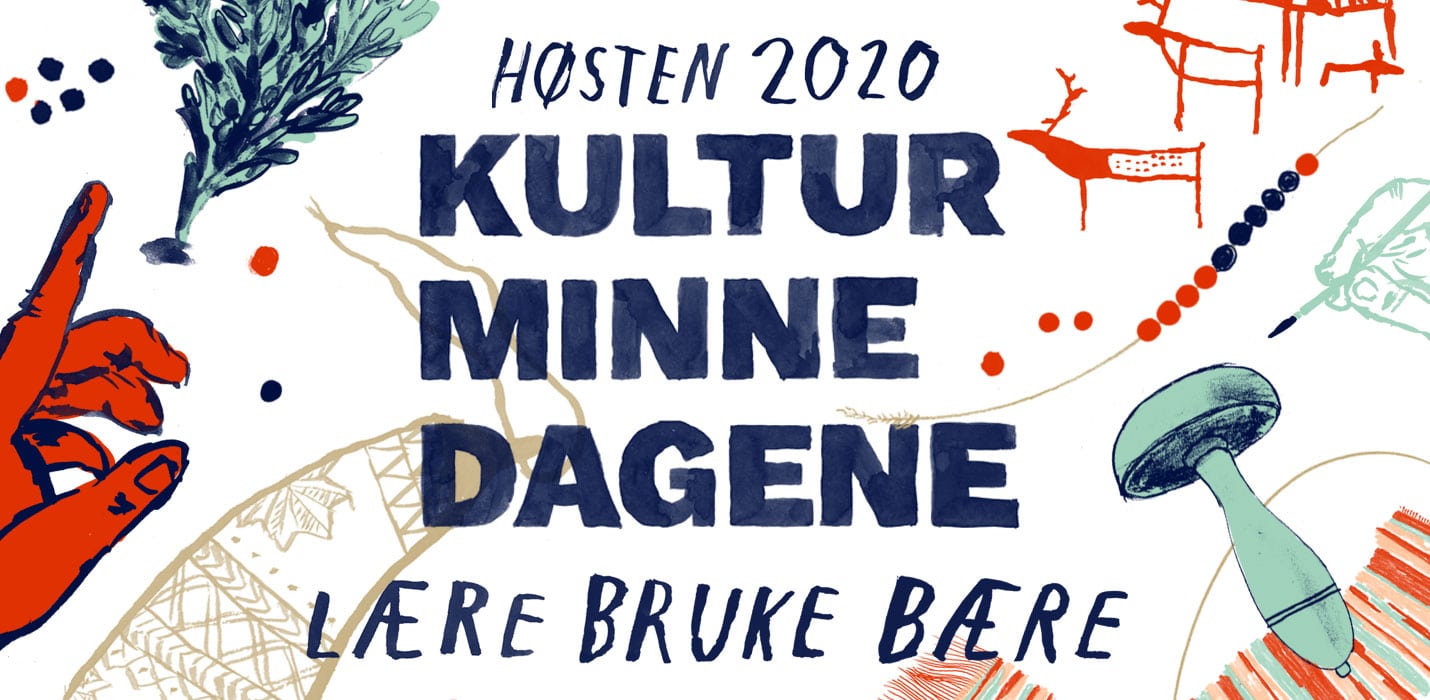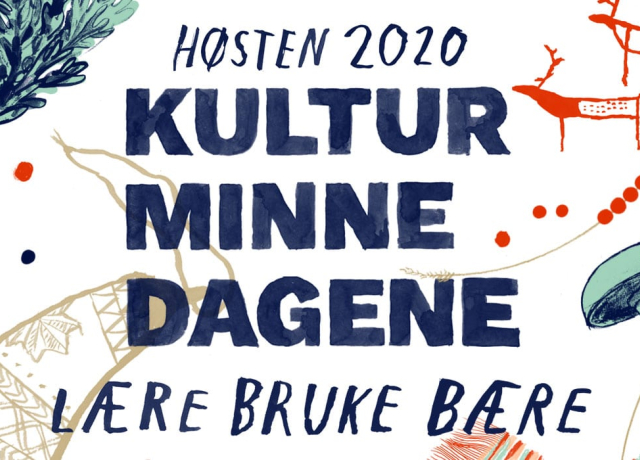European Heritage Days Article:
The European Heritage Days 2020 - Norway calling for organizers!
European Heritage Days Article:
The European Heritage Days 2020 - Norway calling for organizers!
In 1978 Norway passed the Cultural Heritage Act that describes what automatically enjoys cultural heritage protection and what may be protected under an individual decision. This act well proofs the significance Norway gives to shared responsibility for preserving its cultural heritage by national institutions, organizations and individual members of the society.
To fully expose richness of its heritage concealed in architecture, wooden structures, rocks, landscapes, marine and industrial sites, intangible practices and movable treasures, Norway is calling for organizers to take part in the European Heritage Days that will be held on 5-13 September. This year’s topic ‘Heritage and Education: Learning for life!’ aims to leave a legacy that showcases the potential of heritage as a tool for learning and inspiration for the future, offering a doorway to our shared European heritage.
European Heritage Days in Norway 2019 highlights
The European Heritage Days in Norway has a long history and counts around 300 events and 50,000 visitors around the country each year. Last year, nostalgic recollections and musical and dance performances by local artists came back to life at Vonheim town hall. Adventurous visitors enjoyed one of the country’s dramatic landscapes during a guided tour of the rocky slope in the Prestegardsmoen. Additional activities were hosted on the beautiful Bergslit meadow. These explorations of the natural landscape provided an insight into our role in the preservation of our natural heritage for the future. The idea further echoed as a focal point in a conversation with Tora Aasland, the President of the Norwegian UNESCO Commission. The panel discussion on the preservation of cultural and historical monuments in Stavanger was held in Rennesøy.
Aircraft enthusiasts learned about Norway's first civilian airport and discover a unique collection of rare veteran aircraft at Kjeller harbour. Children could explore natural heritage in a number of activities at The Children's Stone and Magic Day at The Silver Mines (Norsk Bergverksmuseum).
Sharing Is Caring!
This year, country specific theme of Norway is ‘LEARN, USE, CARE’ (‘LÆRE BRUKE BÆRE’). The recurrent changes in social and economic conditions affect both our natural and cultural heritage and indeed, learning and caring is the only way to keep heritage alive! To find smart, sustainable solutions in regard to the environment, economy and social development is one of the greatest challenges we face today and in this, history can teach us a lot. By recalling the European past and learning its cultural heritage thoroughly, we are able to see all in the retrospective: development in society, how people lived and nourished themselves and how resources were utilized. What knowledge have we gained and lost along the way? Norway suggests that in the future, we must do more with less to meet the UN's Sustainability Goal number 12: Affirming sustainable consumption and production patterns. We must ensure that resources and knowledge are reused - not lost, forgotten or discarded!
Calling for Organizers of the Euroepan Heitage Days in Norway

In 2020, organizers will develop a program that links history and cultural heritage while trying to find answers to the following questions: What role does cultural heritage carry in times of dramatically changing climate and environment? Do traditions have something to offer us in a possible new circular economy?
Practicing crafts and using local materials are important for sustainable consumption patterns; Performing and visual arts, literature and music are mediums in which we can best picture the time we live in and capture the contemporality. Organizers can use different art forms to spread their message and are encouraged to recycle and revitalize a forgotten history, develop new concepts that are anchored in the European cultural heritage and identity. Volunteers, public institutions and local businesses are invited to take this opportunity and enhance cultural heritage education while making it accessible for every individual.
Interested organizers will receive free posters that can be shared with local communities for advertising events. All events registered before 20th of August, will be considered to receive the Cultural Heritage Day Prize of NOK. 30.000. The last year’s award was split between two coastal teams, Øksnes coast team - for the event "From stone age food to food in the future - a time travel in food culture" and Nærsnes coast team - for 19 continuous years of involvement as an organizer.
The cultural heritage days in Norway, part of the European Heritage Days, are organized by voluntary teams, associations, museums, municipalities, private owners of the cultural heritage sites and other individuals who wish to contribute to the celebration of shared European heritage. Anyone can join!
The full programme will be announced on the website of the Cultural Protection Association of Norway, as well as on the country’s page on our portal.
As a starting point for exploring the cultural ties that reconnects your country/region/community with the #EuropeanHeritageDays you are invited to explore the 101 Event Ideas Brochure. This is a never-ending celebration of continuous exchange and innovation that has taken place across the continent for thousands of years.
